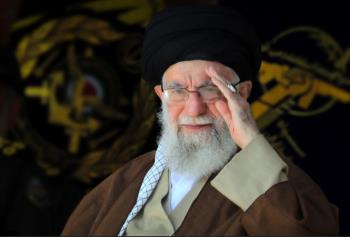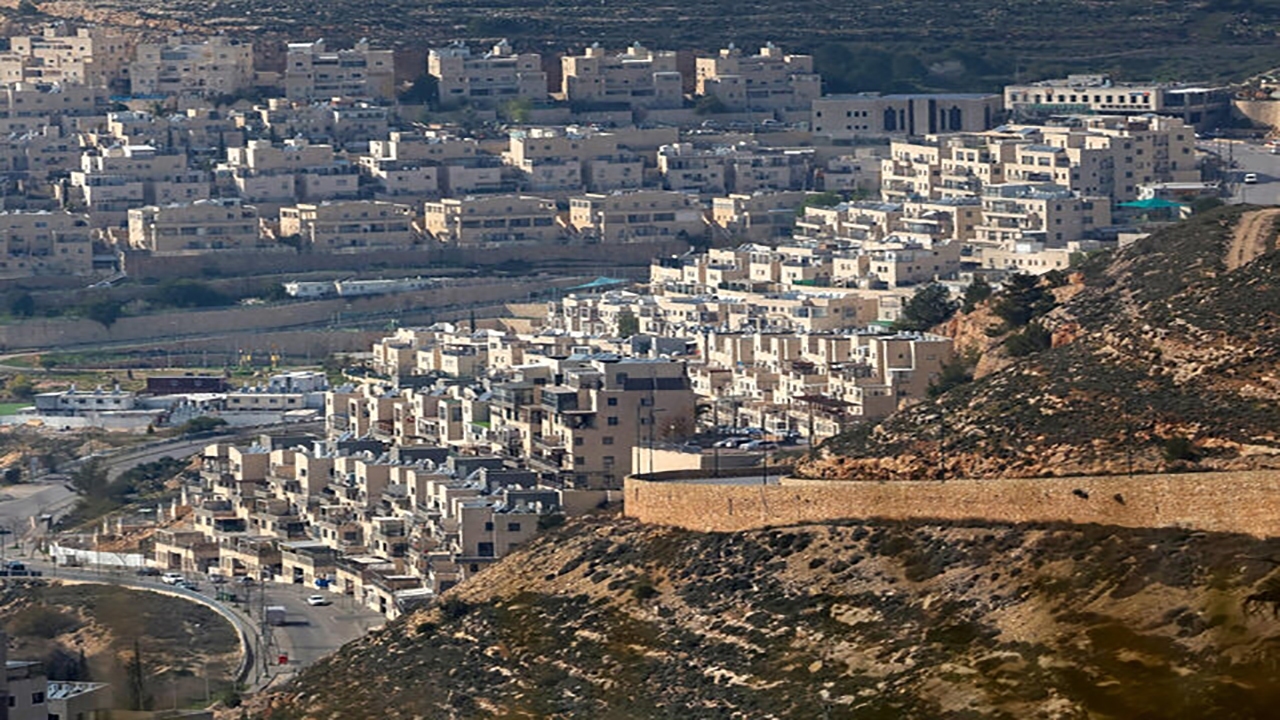Alwaght- While the world community is pushing heavier every day to end the Gaza war, the Israeli regime under the influence of the radicals not only does not stop war, but also inflames the crisis by advancing destabilizing plans like annexation of the West Bank.
In this connection, the Israeli parliament voted to a non-binding and symbolic bill to annex the West Bank. The bill was passed with 71 out of 120 MPs voting in favor and 13 against. It is legally non-binding, but it is a “declaration by the Knesset” asking the cabinet to announce sovereignty over the whole West Bank.
The approval of the bill sparked a wave of global reactions, with Palestinian groups condemning the move as a violation of international legitimacy and signed agreements, especially the Oslo Accords, and a direct threat to the Palestinian presence in the West Bank. The (Persian) Gulf Cooperation Council countries, the European Union, the United Nations, and a number of Western countries also condemned the motion.
The annexation plan is one of the main aspirations of the radical parties in the Israeli regime’s cabinet, which Benjamin Netanyahu promised when he began his coalition government in December 2022 to gain the support of his hardline allies. This move shows that Tel Aviv is pursuing its settlement expansion policy diligently and without interruption, disregarding international obligations and human rights laws.
Tel Aviv aims behind the move
The main Israeli aim is to consolidate a permanent control over the West Bank and change the field realities in its favor. Annexation of the West Bank, especially its strategic parts like Jordan Valley and areas under military control of Israel like Area C will mean full destruction of the two-state solution. This policy is aimed at increasing and legitimizing Israeli settlements.
This plan is brought forward in a situation where some Western countries such as France, Spain and England are mulling recognition of independent state of Palestine. In such an environment, the Israeli regime, with the aim of completely occupying the West Bank, is trying to neutralize any international initiative to protect the rights of the Palestinians and prevent the realization of diplomatic measures in their favor.
In addition, the Netanyahu government is trying to consolidate its complete dominance in these areas by taking advantage of the political weakness of the Palestinian Authority and the internal divisions of the Palestinians. The approval of such plans in these circumstances indicates political opportunism to advance long-term goals in the shadow of the Gaza crisis.
Since the hardline ministers have conditioned their stay in the cabinet coalition on the continuation of the occupation and the expulsion of the Palestinians from their lands, this move by Netanyahu is a strategic concession to the right-wing in order to preserve his fragile coalition and prevent the collapse of the cabinet.
The approval of the annexation bill in the midst of the Gaza war is also a means of consolidating internal cohesion in the occupied territories. The Netanyahu government and its extremist allies, exploiting the security and emotional atmosphere created by the war, are trying to present annexation as a legitimate response to security threats and justify it in the form of defending the regime’s existence. This tactic is a form of exploiting the crisis to legitimize long-term aggressive actions.
On the other hand, after experiencing strategic defeats against the Gaza resistance groups, the Israeli regime is now increasingly concerned about the expansion of the influence and military power of these groups in the West Bank. The Israelis, who have always feared that the West Bank would become a new front, understand the security implications of this development and seek to contain the nascent resistance movements before they consolidate their structures in the West Bank.
The obstacles ahead of annexation
Annexation of the West Bank to other occupied territories is facing serious internal, regional, and international obstacles despite the repeated pushes by various Israeli governments. One of the key barriers is the opposition of the world community. The UN, the EU, and many others including the traditional allies of Tel Aviv like Britain and even some currents in the US argue that annexation of this Palestinian region is an obvious violation of the international laws and the UN resolutions. So, in case of official annexation, it is not unlikely that Israel will be punished by diplomatic, economic, and even security boycott.
On the other hand, the process of recognizing the Palestinian state may also accelerate with the Israeli actions that stir tension and further weaken the international legitimacy of the regime.
At the regional level, Arab countries, especially Jordan and Egypt, which have peace treaties with the Israeli regime, have warned against this move. Therefore, the Knesset decision complicates Israel’s relations with some Arab countries that are in the process of normalizing and could lead to the collapse of peace agreements and spark of popular protests in Arab countries, cause instability. Jordan is concerned that annexation will increase pressure on the country to permanently settle Palestinians, which is a threat to its national identity and internal stability.
Within Palestine, the annexation of the West Bank will also face strong resistance from the Palestinian people and resistance groups. Contrary to the Israeli leaders’ expectations, annexation of this region will not be easy, and since this move would mean violating past agreements and completely depriving the Palestinians of their right to self-determination, it could lead to a wave of unrest, conflicts, and even a new intifada. It would also be a dangerous escalation of tensions that threatens regional stability and undermines all prospects for peace.
There is also opposition at the domestic level, and some military and security circles have warned of the security, demographic, and political consequences of annexation.
Given the tough obstacles ahead of this occupational plan, some political observers label this parliament motion “symbolic” and politically-motivated and without practical effect at present. A source at Likud party of Israeli described the move “futile”, adding that proposing this after 16 years is just a political show.
In general, although Tel Aviv has high logistical and military capabilities, annexation of the West Bank amid Gaza war would be a risky, costly, and escalatory move and could jeopardize home security of the regime more than what is expected. It goes without saying that despite enjoying an advanced arsenal, a well-equipped army, and extensive financial and political support from the West, Tel Aviv has not been able to fully occupy or control the small, besieged Gaza Strip in the past two years. Therefore, in the West Bank, which is larger in size and more populous than Gaza, annexation will face way greater obstacles.



























